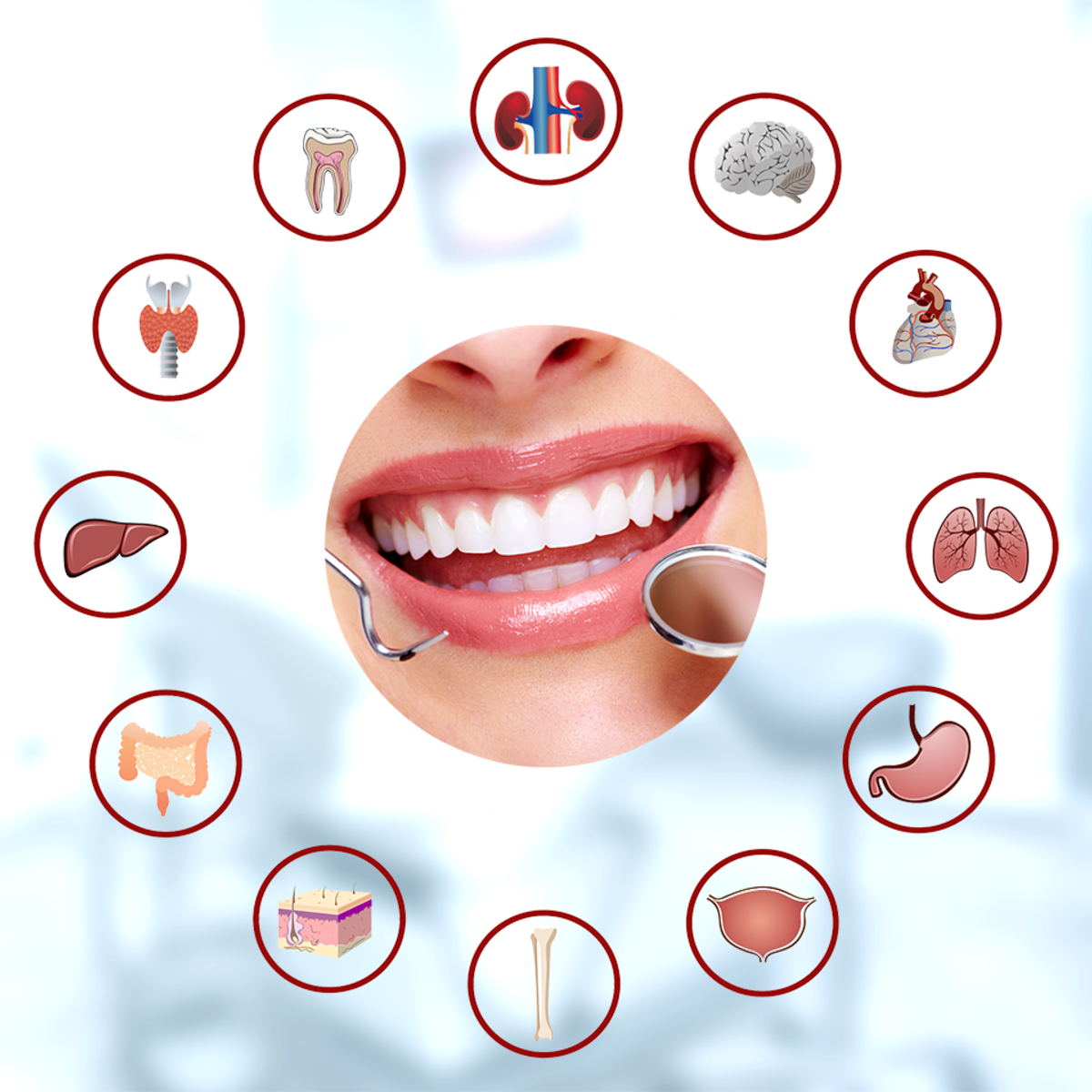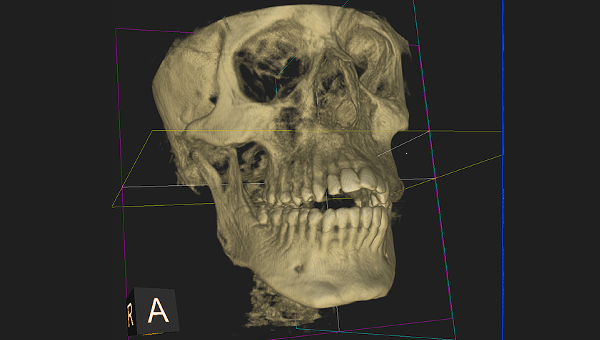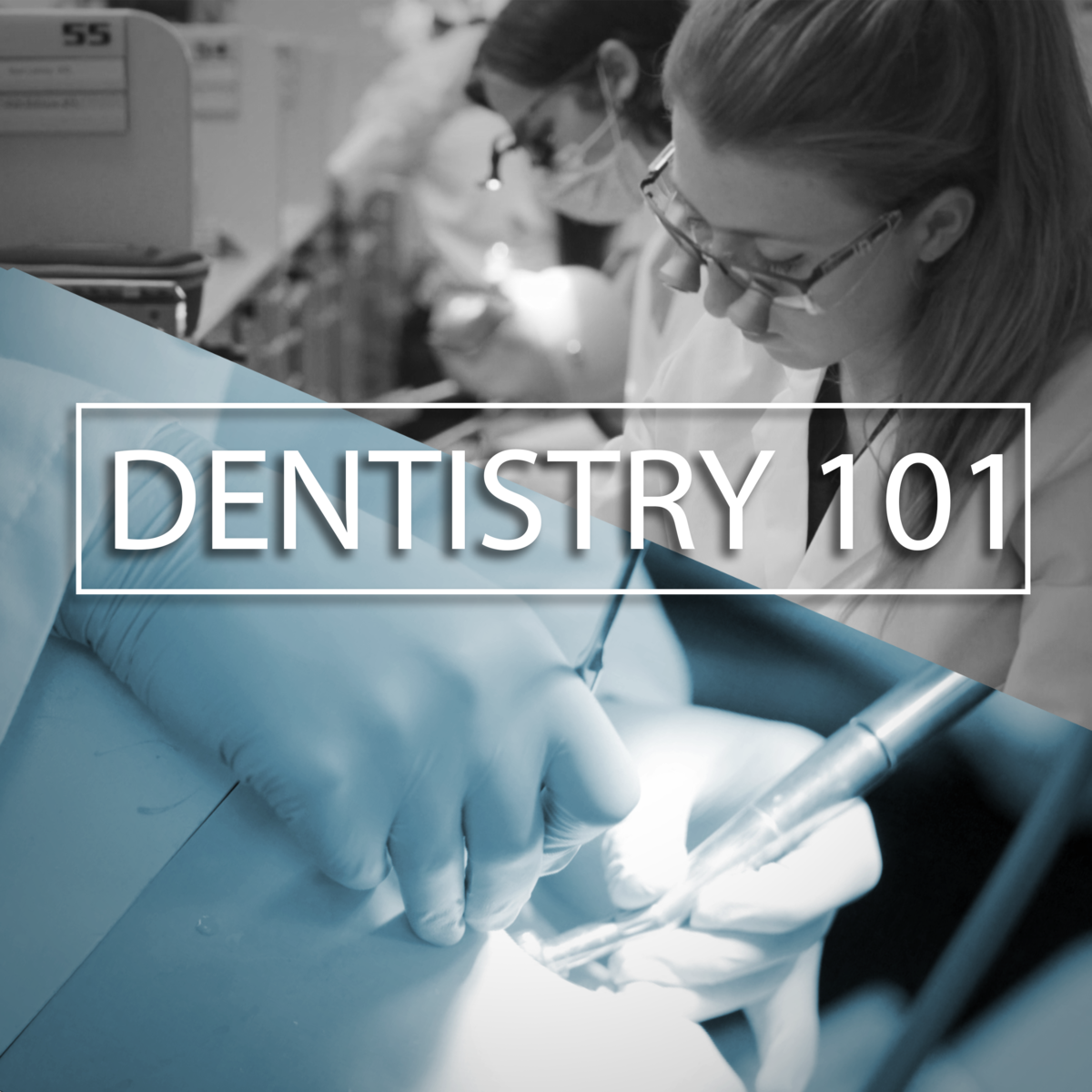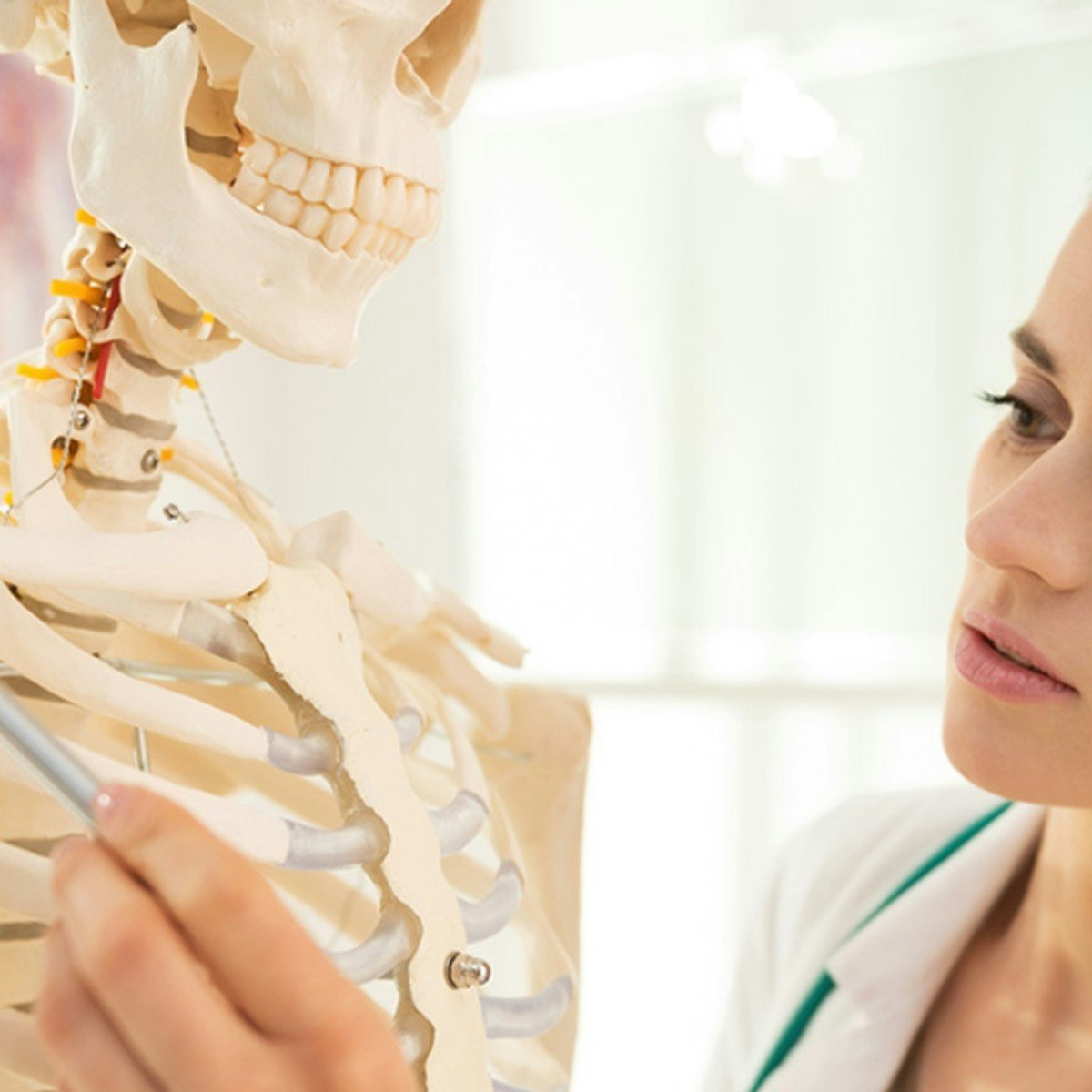Dental Assistant
A Comprehensive Guide to Becoming a Dental Assistant
A dental assistant is a vital member of the dental care team, working closely with dentists and dental hygienists to provide patient care and ensure the smooth operation of a dental practice. They perform a wide range of tasks, combining clinical skills, administrative duties, and patient interaction. Think of them as the dentist's indispensable right hand, facilitating procedures and managing the office environment.
Working as a dental assistant can be deeply engaging. You'll be directly involved in helping patients improve their oral health, witnessing transformations in smiles and confidence. The role often involves a dynamic mix of hands-on technical procedures and essential communication, making each day varied and interesting. It's a career path within the growing Health & Medicine field that offers stability and direct patient impact.
Introduction to Dental Assisting
What is Dental Assisting?
Dental assisting focuses on supporting dental operators (dentists, hygienists, therapists) in delivering oral healthcare. The core purpose is to enhance the efficiency and effectiveness of the dental team. Assistants prepare patients for treatment, sterilize instruments, pass instruments during procedures, expose dental radiographs (X-rays), take impressions, and perform various office management tasks.
They act as a crucial link between the dentist and the patient, often helping patients feel more comfortable before, during, and after treatment. Their support allows the dentist to focus more intently on the technical aspects of dental procedures, leading to better patient outcomes and a more streamlined workflow within the practice.
Understanding the scope of practice is key. Dental assistants perform tasks under the supervision of a licensed dentist, and their specific allowable duties can vary significantly depending on state regulations.
A Brief History
The role of the dental assistant evolved significantly over time. In the early days of dentistry, dentists often worked alone or with minimally trained helpers. It wasn't until the late 19th and early 20th centuries that the concept of a formally trained assistant gained traction, initially pioneered by Dr. C. Edmund Kells, who employed a "lady in attendance" in 1885 to assist him chairside.
This innovation proved invaluable, increasing efficiency and patient comfort. Over the decades, the role expanded from basic chairside help and cleaning to include technical procedures like taking X-rays and impressions, laboratory duties, and complex administrative tasks. Professional organizations and formal education programs emerged, standardizing training and credentialing.
Today, dental assistants are recognized as essential healthcare professionals, equipped with specialized knowledge and skills critical to modern dental care delivery.
Distinguishing Roles: Assistant vs. Hygienist vs. Dentist
It's common for those outside the field to confuse the roles within a dental office. A Dental Assistant primarily supports the dentist chairside, handles sterilization, takes radiographs, manages patient records, and performs other office duties. Their scope of direct patient treatment is limited and varies by state law.
A Dental Hygienist holds a specific license, typically requiring an associate's or bachelor's degree in dental hygiene. They focus on preventive care, performing procedures like teeth cleanings (prophylaxis), scaling and root planing for gum disease, applying sealants and fluorides, educating patients on oral hygiene, and sometimes administering local anesthesia. Their role is more focused on direct, preventive patient treatment.
A Dentist (DDS or DMD) is a doctor who diagnoses oral diseases, creates treatment plans, performs restorative procedures (fillings, crowns), surgical procedures (extractions, implants), orthodontic treatments, and manages the overall oral health of patients. They have the highest level of training and ultimate responsibility for patient care within the practice.
Roles and Responsibilities of a Dental Assistant
Clinical Duties
A significant portion of a dental assistant's day involves clinical tasks. Preparing treatment rooms for dental procedures is fundamental, ensuring all necessary instruments, materials, and equipment are ready and sterile. Sterilizing instruments according to strict protocols is paramount for infection control.
During procedures, assistants work chairside, anticipating the dentist's needs and passing instruments efficiently. They might operate suction devices to keep the patient's mouth clear, prepare materials like fillings or impression compounds, and assist with moisture control. Taking and developing dental radiographs (X-rays) is another common and critical clinical duty.
Other hands-on tasks can include taking preliminary dental impressions for study models, applying topical anesthetics, providing post-operative instructions to patients, and assisting in basic dental laboratory procedures like pouring models from impressions.
These courses provide insight into various dental procedures and materials assistants may encounter.
Administrative Tasks
Beyond the treatment room, dental assistants often handle crucial administrative responsibilities. Greeting patients, scheduling appointments, and managing the appointment book are common front-office duties. They frequently answer phones, manage patient correspondence, and maintain organized and confidential patient records.
Handling billing and payments, processing insurance claims, and managing office inventory and supplies also fall under their purview in many practices. Proficiency with dental office software for scheduling, charting, and billing is increasingly essential.
These administrative functions ensure the dental practice runs efficiently and patients have a positive experience from the moment they contact the office. Strong organizational and communication skills are vital for success in these tasks.
Patient Care and Communication
Dental assistants play a key role in patient comfort and communication. They often escort patients to the treatment room, help them feel at ease, and explain procedures in understandable terms. Building rapport and trust is essential, especially with anxious patients.
Providing clear pre- and post-operative instructions is crucial for treatment success and patient well-being. Assistants must listen attentively to patient concerns and relay important information accurately to the dentist. Empathy, patience, and excellent interpersonal skills are indispensable.
Educating patients about oral hygiene techniques or explaining treatment plans under the dentist's direction can also be part of the role. This interaction makes the assistant a critical part of the patient's overall care experience.
Understanding the broader context of health can be beneficial for patient communication.
Specialized Roles
While many dental assistants work in general dentistry, opportunities exist to specialize. In orthodontic practices, assistants might help with placing and removing braces, taking specialized X-rays and photos, and instructing patients on orthodontic care.
In oral surgery offices, assistants aid in surgical procedures, monitor patients under sedation (with appropriate training), manage surgical instruments, and provide detailed post-surgical care instructions. Other specialties like periodontics (gums), endodontics (root canals), prosthodontics (replacement teeth), and pediatric dentistry also employ assistants with specific skill sets relevant to those fields.
These specialized roles often require additional training or certifications but can offer different challenges and rewards compared to general practice assisting.
These books cover specialized areas where dental assistants might work.
Education and Certification Pathways
High School Preparation
For those considering dental assisting early on, certain high school courses can provide a strong foundation. Science courses, particularly biology and chemistry, are highly beneficial for understanding anatomy, physiology, and the materials used in dentistry. Health science or anatomy classes can offer direct insights into the human body.
Developing strong communication and interpersonal skills through English, speech, or drama classes is also valuable, given the patient-facing nature of the role. Basic computer literacy is essential for administrative tasks. Maintaining a good academic record demonstrates diligence and the ability to learn complex information.
Volunteering or shadowing in a dental office, if possible, can provide invaluable real-world exposure and help confirm if this career path is a good fit before committing to formal training.
Accredited Dental Assistant Programs
Formal training typically occurs through postsecondary dental assisting programs, often offered at community colleges, vocational schools, technical institutes, or dental schools. These programs usually range from about 9 months to 2 years in length, culminating in a certificate, diploma, or associate degree.
Accredited programs, recognized by organizations like the Commission on Dental Accreditation (CODA), part of the American Dental Association (ADA), ensure a standard level of quality education. Curriculum typically includes classroom instruction, laboratory work, and supervised clinical experience. Topics cover dental sciences, chairside assisting techniques, radiography, infection control, dental materials, and office management.
Some states may allow on-the-job training as an alternative pathway, but formal education is often preferred by employers and may be required for certain advanced functions or certifications.
These courses offer foundational knowledge relevant to dental assisting programs.
Certification Exams
While not always mandatory for basic assisting duties (depending on the state), certification significantly enhances job prospects and demonstrates a commitment to the profession. The most recognized certification is the Certified Dental Assistant (CDA) credential offered by the Dental Assisting National Board (DANB).
To earn the CDA credential, candidates typically need to graduate from a CODA-accredited program or meet specific work experience requirements, and then pass a comprehensive examination covering General Chairside Assisting, Radiation Health and Safety (RHS), and Infection Control (ICE).
DANB also offers other certifications like Certified Orthodontic Assistant (COA) and Certified Preventive Functions Dental Assistant (CPFDA). Maintaining certification requires ongoing continuing education, ensuring assistants stay current with evolving practices and technologies.
This book covers infection control, a key component of certification and safe practice.
State-Specific Licensing and Requirements
The regulation of dental assistants varies greatly from state to state. Some states have minimal requirements, allowing assistants to perform basic supportive tasks with on-the-job training under dentist supervision. Other states require formal education, specific examinations (often DANB exams), and registration or licensure to practice.
Certain duties, particularly "expanded functions" like placing fillings, polishing teeth, or applying sealants, almost always require specific state-approved training, examination, and credentialing beyond basic assisting. It is crucial for aspiring and practicing dental assistants to research and comply with the specific requirements set by the dental board in the state where they intend to work.
Failure to meet state regulations can result in legal issues for both the assistant and the supervising dentist. State dental board websites are the best resources for current, accurate information on requirements.
Career Progression for Dental Assistants
Entry-Level vs. Experienced Roles
Entry-level dental assistants typically start with foundational tasks like sterilizing instruments, setting up treatment rooms, basic chairside assistance, and some administrative duties. As they gain experience, their responsibilities often expand. They become more adept at anticipating the dentist's needs, proficient in various procedures like taking high-quality radiographs and impressions, and may take on more complex administrative or patient management tasks.
Experienced assistants often demonstrate greater efficiency, clinical judgment (within their scope), and problem-solving skills. They might help train new assistants or take the lead on specific office functions like inventory management or infection control protocols. This experience often translates into higher earning potential.
Continuous learning, whether through formal continuing education or on-the-job training, is key to progressing from an entry-level to a highly valued, experienced assistant.
Advancement Opportunities
Several pathways exist for dental assistants seeking career advancement. With experience and potentially additional business or management training, an assistant can move into roles like Lead Dental Assistant or Dental Office Manager. These positions involve supervising other staff, managing office operations, handling complex billing and insurance issues, and ensuring regulatory compliance.
Another path involves leveraging clinical expertise to become an educator. Experienced assistants can teach in dental assisting programs at vocational schools or community colleges, sharing their knowledge and skills with the next generation. This often requires further education, such as a bachelor's degree, and relevant certifications.
Some assistants may also find opportunities in dental sales, representing companies that sell dental equipment, materials, or software. Their clinical background provides valuable insight when communicating with dental professionals.
Transitioning to Other Dental Roles
The experience gained as a dental assistant can serve as a stepping stone towards other clinical roles in dentistry. A common transition is pursuing education to become a Dental Hygienist. This requires completing an accredited dental hygiene program (typically an associate's or bachelor's degree) and passing state or regional licensing exams.
Some assistants may be inspired to pursue dentistry itself, although this requires completing prerequisite undergraduate coursework, passing the Dental Admission Test (DAT), and graduating from a four-year dental school program (DDS or DMD). Others might explore roles like Dental Technician, focusing on fabricating crowns, bridges, and dentures in a laboratory setting.
While these transitions require significant additional education and commitment, the foundational knowledge and experience from dental assisting can be advantageous.
Salary Growth Benchmarks
Salary expectations for dental assistants vary based on factors like geographic location, years of experience, level of education and certification, type of practice (general vs. specialty), and specific job responsibilities. Entry-level salaries are typically modest but tend to increase with experience and added skills or credentials.
According to the U.S. Bureau of Labor Statistics (BLS), the median annual wage for dental assistants was $46,540 in May 2023. Assistants with certifications like the DANB CDA credential or those performing expanded functions often command higher salaries. Advancement into management or teaching roles generally leads to further salary growth.
While specific benchmarks change, the trend shows that gaining experience, acquiring certifications, and potentially specializing can positively impact earning potential over the course of a dental assisting career.
Workplace Environment and Challenges
Typical Clinical Settings
The vast majority of dental assistants work in private dental practices, alongside general dentists or specialists like orthodontists, periodontists, or oral surgeons. These settings range from small solo practices to larger group practices with multiple dentists and staff members.
Other employment settings include dental clinics within hospitals, public health clinics, dental schools, government facilities (like military bases or correctional institutions), and corporate dental practices. The work environment can differ based on the setting; for example, a hospital or public health clinic might serve a different patient population or have different protocols than a private cosmetic dentistry practice.
Regardless of the setting, the core responsibilities of assisting the dentist and ensuring smooth clinical operations remain central to the role.
Physical Demands
Dental assisting can be physically demanding. The role often requires spending long periods standing or sitting in potentially awkward positions while assisting chairside. Good posture and ergonomic practices are important to prevent musculoskeletal strain, particularly in the back, neck, and shoulders.
Manual dexterity and good hand-eye coordination are essential for handling small instruments and materials precisely. Assistants must also be able to lift or move equipment and supplies, although heavy lifting is not typically a constant requirement.
Understanding and utilizing ergonomic principles, taking short breaks to stretch, and maintaining overall physical fitness can help mitigate the physical stresses associated with the job.
Exposure and Safety Protocols
Working in a dental setting involves potential exposure to infectious diseases through contact with blood, saliva, and aerosols generated during procedures. Strict adherence to infection control protocols, including the use of personal protective equipment (PPE) like gloves, masks, eyewear, and gowns, is mandatory and critical for safety.
Proper sterilization of instruments and disinfection of surfaces are fundamental responsibilities to protect both patients and the dental team. Assistants must also be trained in handling hazardous materials (like certain chemicals or dental materials) and managing sharps (needles, scalpel blades) safely to prevent accidental injuries.
Exposure to radiation from X-ray equipment is another consideration, requiring adherence to safety guidelines like using lead aprons and maintaining proper distance or shielding. Comprehensive training in safety protocols is a standard part of dental assistant education.
This book provides detailed guidance on safety and infection control.
This course covers basic life support skills, which are crucial in any healthcare setting.
Stress Management Strategies
The dental office can sometimes be a high-paced and stressful environment. Dealing with anxious patients, managing tight schedules, assisting with complex procedures, and handling occasional emergencies can contribute to stress. Effective stress management techniques are beneficial for long-term career satisfaction.
Strategies include maintaining clear communication with the dental team, practicing good time management and organizational skills, and seeking support from colleagues or supervisors when needed. Taking short breaks during the day, practicing mindfulness or relaxation techniques, and maintaining a healthy work-life balance are also important.
Developing resilience and coping mechanisms helps dental assistants navigate the demanding aspects of the job while continuing to provide compassionate patient care.
Essential Skills for Dental Assistants
Technical Skills
Proficiency in a range of technical skills is fundamental to dental assisting. This includes mastering instrument sterilization techniques, accurately taking and developing dental radiographs using various equipment (digital and traditional), and skillfully taking dental impressions for models or appliances.
Chairside assisting requires dexterity in passing instruments, operating suction devices, retracting tissues, and preparing and mixing dental materials according to manufacturer specifications. Depending on state regulations and training, technical skills might also extend to coronal polishing, sealant application, fluoride treatments, or fabricating temporary crowns.
Understanding dental anatomy, terminology, and basic procedures is essential context for performing these technical tasks effectively and safely.
Understanding medical terminology is crucial for communication and documentation in any healthcare field.
Soft Skills
While technical skills are crucial, soft skills are equally important for success as a dental assistant. Excellent communication and interpersonal skills are needed to interact effectively with patients, dentists, hygienists, and other staff members. Empathy and compassion help in comforting anxious patients and building trust.
Strong organizational skills and the ability to multitask are vital for managing appointments, patient flow, and various clinical and administrative duties simultaneously. Attention to detail is critical for tasks ranging from instrument sterilization to accurate record-keeping and following procedural steps precisely.
Professionalism, reliability, teamwork, and a positive attitude contribute significantly to a harmonious and efficient work environment. These skills are often developed through experience but are highly valued by employers from the outset.
Digital Literacy
Modern dental practices rely heavily on technology, making digital literacy an essential skill for dental assistants. Proficiency in using dental practice management software for scheduling, charting, billing, and patient records is standard. Familiarity with digital radiography software for capturing, storing, and retrieving X-ray images is also crucial.
Some practices utilize intraoral cameras, CAD/CAM systems for restorations, or other advanced technologies where assistant involvement might be required. Basic computer skills, including email communication and navigating online resources for continuing education or supply ordering, are expected.
Comfort and adaptability with technology are increasingly important as dental offices continue to adopt digital workflows.
This book discusses oral radiology, increasingly reliant on digital technology.
Continuous Learning Requirements
Dentistry is a constantly evolving field, with new materials, techniques, technologies, and regulations emerging regularly. Consequently, a commitment to lifelong learning is essential for dental assistants to maintain competence and advance their careers. Many states and certifying bodies (like DANB) require proof of continuing education (CE) credits to maintain licensure or certification.
CE courses cover a wide range of topics, including infection control updates, new dental materials or technologies, medical emergency preparedness, specific clinical procedures, and legal or ethical issues. Learning can occur through workshops, lectures, online courses, professional journals, and dental conventions.
Embracing continuous learning not only fulfills requirements but also enhances skills, improves patient care, and keeps assistants engaged and knowledgeable throughout their careers. OpenCourser offers a way to browse courses across many subjects relevant to professional development.
These courses explore advancements and specific areas within dentistry, reflecting the need for continuous learning.
Technology in Modern Dental Assisting
Digital Imaging Systems
Digital radiography has largely replaced traditional film-based X-rays in many dental practices. Dental assistants must be proficient in using digital sensors or phosphor plates to capture images, operating the associated computer software to view, enhance, and store the images. This technology offers benefits like reduced radiation exposure, immediate image availability, and easier storage and sharing.
Intraoral cameras are another common digital tool, allowing assistants or dentists to capture magnified images from inside the patient's mouth. These images are valuable for patient education, diagnosis, and documentation. Familiarity with handling these devices and managing the resulting images is an important skill.
Cone Beam Computed Tomography (CBCT) provides 3D images and is used in more complex cases like implant planning or surgical assessments. Assistants in practices utilizing CBCT may be involved in patient positioning and operating the machine, requiring specialized training.
CAD/CAM Technology
Computer-Aided Design/Computer-Aided Manufacturing (CAD/CAM) technology allows for the design and fabrication of dental restorations like crowns, veneers, and bridges directly in the dental office, often within a single visit. While dentists or specialized technicians typically handle the design and milling, dental assistants play a crucial role.
Assistants may be responsible for preparing the patient, taking digital impressions using an intraoral scanner (instead of traditional impression materials), operating the milling machine, and preparing the restoration for final placement by the dentist. Understanding the workflow and technology involved is increasingly valuable.
This technology streamlines the restorative process, and assistants knowledgeable in CAD/CAM systems are an asset to practices offering these services.
Electronic Health Records (EHR)
Electronic Health Records (EHR) or Electronic Dental Records (EDR) systems have replaced paper charts in most modern dental offices. Dental assistants routinely use EHR systems to schedule appointments, input patient information, update medical histories, chart existing conditions and treatments, record vital signs, and manage billing and insurance information.
Proficiency with the specific EHR software used by the practice is essential for efficiency and accuracy. These systems improve record-keeping, facilitate communication among the dental team, enhance data security (when used correctly), and streamline administrative tasks.
Understanding the importance of data privacy and security protocols, such as HIPAA compliance, when using EHR systems is also a critical responsibility.
Impact of AI on Diagnostic Support
Artificial intelligence (AI) is beginning to make inroads into dentistry, primarily in diagnostic support. AI algorithms are being developed to analyze dental radiographs (X-rays) to help detect cavities, bone loss, or other abnormalities that might be subtle or easily missed by the human eye. This technology aims to assist, not replace, the dentist's clinical judgment.
While direct interaction with AI diagnostic tools might be limited for assistants currently, understanding that such technologies exist and may become more integrated into practice workflows is important. AI could potentially streamline image analysis or assist in treatment planning suggestions in the future.
As AI evolves, assistants may play a role in managing the data input for these systems or explaining the technology's role to patients, highlighting the ongoing importance of adaptability in the field.
Ethical Considerations for Dental Assistants
Patient Confidentiality (HIPAA)
Protecting patient privacy is a fundamental ethical and legal obligation in healthcare. Dental assistants have access to sensitive patient information, including medical histories, diagnoses, treatment plans, and financial details. Maintaining confidentiality is paramount.
In the United States, the Health Insurance Portability and Accountability Act (HIPAA) sets strict standards for protecting patient health information (PHI). Assistants must understand and adhere to HIPAA regulations regarding the use, disclosure, and safeguarding of PHI, whether in paper or electronic format (EHR).
This includes avoiding discussions about patients in public areas, ensuring records are stored securely, and using appropriate safeguards when transmitting electronic data. Breaches of confidentiality can have serious legal and professional consequences.
Informed Consent Protocols
While the dentist is ultimately responsible for obtaining informed consent for treatment, dental assistants often play a role in the process. They might provide patients with information about a procedure (as directed by the dentist), answer basic questions, present consent forms for signature, and ensure the signed forms are properly documented in the patient's record.
It is crucial that assistants understand the principles of informed consent – that patients must receive adequate information about the proposed treatment, alternatives, risks, and benefits, and voluntarily agree to proceed without coercion. Assistants should refer complex questions or concerns back to the dentist.
Ensuring the patient understands the information and has their questions answered before signing is an ethical responsibility shared by the entire dental team.
Managing Conflicts of Interest
Conflicts of interest can arise in various situations in a dental practice. For example, recommending specific products or services based on personal gain (like commissions) rather than the patient's best interest would be unethical. Dental assistants should always prioritize the patient's welfare above personal or commercial interests.
Maintaining professional boundaries with patients is also important. While building rapport is encouraged, overly familiar relationships can sometimes lead to compromised objectivity or ethical dilemmas. Assistants should adhere to professional codes of conduct established by their employers and relevant professional organizations.
Transparency and honesty in all interactions with patients and colleagues are key to navigating potential conflicts ethically.
Reporting Unethical Practices
Dental assistants have an ethical responsibility to report observed instances of unethical or illegal practices within the dental office. This could include breaches of infection control, insurance fraud, substandard patient care, harassment, or practicing outside the legal scope of practice.
Knowing the proper channels for reporting is important, which might involve discussing concerns with a supervisor or office manager first, or escalating to the practice owner, state dental board, or other relevant authorities if necessary. Whistleblower protections may apply in certain situations.
While potentially difficult, reporting unethical conduct is crucial for protecting patient safety and upholding the integrity of the dental profession.
Dental Assistant Job Market Trends
Projected Growth Rates
The job outlook for dental assistants is generally positive. The U.S. Bureau of Labor Statistics (BLS) projects employment of dental assistants to grow 7 percent from 2022 to 2032, which is faster than the average for all occupations. This growth is driven by ongoing research linking oral health to overall health, increasing demand for dental services as the population ages, and the expansion of group practices requiring more support staff.
Dentists are expected to continue hiring assistants to perform routine tasks, allowing the dentist to see more patients and focus on more complex procedures. This trend underscores the stability and continued demand within the profession.
Exploring OpenCourser can help prospective assistants find training programs to enter this growing field.
Demand in Rural vs. Urban Areas
Job opportunities for dental assistants exist in both rural and urban settings, but the nature of the demand can differ. Urban and suburban areas typically have a higher concentration of dental practices, potentially offering more job openings and opportunities for specialization.
Rural areas may have fewer practices, but the demand for qualified assistants can still be strong, sometimes leading to less competition for available positions. Dentists in underserved rural communities often rely heavily on their assistants for a wide range of tasks. Compensation and working conditions can vary between urban and rural locations.
Aspiring assistants should consider their location preferences and research the specific job market dynamics in their desired area.
Impact of Teledentistry
Teledentistry, the use of technology to provide dental care and consultation remotely, is an emerging trend. While it cannot replace hands-on procedures, it can be used for consultations, patient monitoring, and triage. Dental assistants may play a role in facilitating teledentistry appointments, managing the technology, collecting patient information remotely, or providing follow-up instructions.
The growth of teledentistry could potentially create new roles or modify existing responsibilities for assistants, particularly those involving patient communication and technology management. However, the need for in-person chairside assistants for clinical procedures remains fundamental.
Adaptability to new service delivery models like teledentistry will be beneficial for assistants in the future.
Part-Time vs. Full-Time Opportunities
Dental assisting offers flexibility in terms of employment arrangements. Many positions are full-time, typically involving a standard 35-40 hour work week during regular business hours. However, part-time opportunities are also widely available, making it a potentially suitable career for individuals seeking flexible schedules due to family, education, or other commitments.
Some dental practices offer evening or weekend hours, providing further scheduling options. The availability of part-time versus full-time work can depend on the specific needs of the dental practice and the local job market.
This flexibility can be a significant advantage for those balancing work with other aspects of life.
Online Learning for Aspiring Dental Assistants
Accredited Hybrid Programs
While dental assisting requires significant hands-on clinical training, some aspects of the education can be completed online. Hybrid programs blend online coursework for theoretical subjects (like dental sciences, terminology, infection control principles) with required in-person laboratory sessions and clinical externships for practical skills development.
These programs offer flexibility, allowing students to study didactic material at their own pace and potentially balance education with work or family obligations. When choosing a hybrid program, it's crucial to ensure it is accredited (e.g., by CODA) and provides sufficient hands-on training to meet state requirements and prepare graduates for the job.
OpenCourser's Learner's Guide offers tips on succeeding in online and hybrid learning environments.
Skill-Specific Online Modules
Even for practicing assistants or those trained on the job, online courses can be valuable for targeted skill development or continuing education. Modules focusing on specific areas like dental radiography safety, infection control updates, medical terminology, dental software proficiency, or specific dental materials are readily available.
These online modules allow assistants to refresh their knowledge, learn about new regulations or technologies, or fulfill continuing education requirements for certification or licensure conveniently. Many professional organizations and educational platforms offer such courses.
Utilizing these resources demonstrates a commitment to professional growth and staying current in the field.
These courses cover key knowledge areas often included in online modules.
Limitations of Online Training
It is essential to recognize the limitations of purely online training for dental assisting. The hands-on clinical skills required for the job – such as passing instruments correctly, taking impressions, manipulating materials, and performing chairside procedures – cannot be adequately learned solely through virtual instruction.
Reputable dental assisting education must include a substantial component of supervised, in-person clinical practice. Programs claiming to offer fully online dental assistant training without a practical component are unlikely to provide the necessary skills for competent practice or meet state regulatory requirements.
Prospective students should carefully evaluate program structures, ensuring sufficient hands-on training is integrated, typically through campus labs and supervised externships in actual dental offices.
Cost and Time Efficiency Comparisons
Online or hybrid components of dental assisting programs can sometimes offer cost savings compared to fully traditional programs, potentially reducing commuting expenses or allowing students to maintain part-time work. The ability to progress through didactic material at one's own pace can also be time-efficient for some learners.
However, the overall cost includes tuition, fees, supplies, and potentially costs associated with clinical externships. Program duration varies, but hybrid models are not always shorter than traditional ones due to the need to schedule required in-person components.
Comparing the total cost, program length, accreditation status, and the balance of online versus hands-on training is crucial when evaluating different educational pathways.
Frequently Asked Questions
Can dental assistants perform cleanings?
No, dental assistants generally cannot perform teeth cleanings (prophylaxis) or scaling and root planing. These procedures fall under the scope of practice for licensed dental hygienists or dentists. Dental assistants may perform limited polishing (coronal polishing) in some states, but only after specific training and credentialing, and it is distinct from a full cleaning.
Is certification mandatory in all states?
Certification (like the DANB CDA) is not mandatory to work as a dental assistant in every state for all duties. However, many states require assistants to pass specific exams (often DANB's RHS and ICE exams) or hold state-specific credentials to perform certain functions, especially radiography (taking X-rays). Even where not legally required, certification is highly recommended as it demonstrates competence and often leads to better job prospects and potentially higher pay.
What are the career longevity and burnout rates?
Dental assisting can be a long and rewarding career for many. However, like many healthcare roles, it can experience burnout due to physical demands, workplace stress, and sometimes limited advancement opportunities without further education. Factors influencing longevity include finding a supportive work environment, practicing good ergonomics, pursuing continuing education, and potentially specializing or moving into related roles like office management or teaching.
Are skills transferable to veterinary dentistry?
Some foundational skills, like instrument handling, sterilization techniques, and basic radiography principles, have similarities. However, veterinary dentistry involves different anatomy, specific animal handling skills, and distinct procedures and regulations. Transitioning typically requires significant additional training specific to veterinary assisting or technology. While prior dental assisting experience might be viewed favorably, it's not a direct transfer.
How might automation impact job security?
While technology like AI and robotics is advancing, the core hands-on, patient-facing aspects of dental assisting are less likely to be fully automated in the near future. Tasks requiring direct patient interaction, empathy, adaptability during procedures, and complex manual dexterity are difficult to replicate with current technology. Automation might change certain tasks (e.g., AI assisting with X-ray analysis), but the need for skilled human assistants to work alongside dentists and manage the clinical environment is expected to continue.
Is international credential recognition common?
Recognition of dental assisting credentials across different countries is not automatic and often complex. Training standards, scope of practice, and regulatory requirements vary significantly worldwide. An assistant trained and certified in one country typically needs to meet the specific educational and licensing requirements of the country where they wish to practice, which may involve further training, examinations, or assessments. Researching the specific requirements of the target country's dental regulatory body is essential.
Exploring a career as a dental assistant offers a path into the vital field of healthcare, combining technical skills with essential patient interaction. It requires dedication to learning, precision in execution, and a compassionate approach to care. While challenges exist, the opportunity to contribute directly to patient well-being and work as part of a dynamic team makes it a fulfilling profession for many. Carefully consider the educational requirements, job responsibilities, and workplace environment to determine if this rewarding career aligns with your aspirations.















